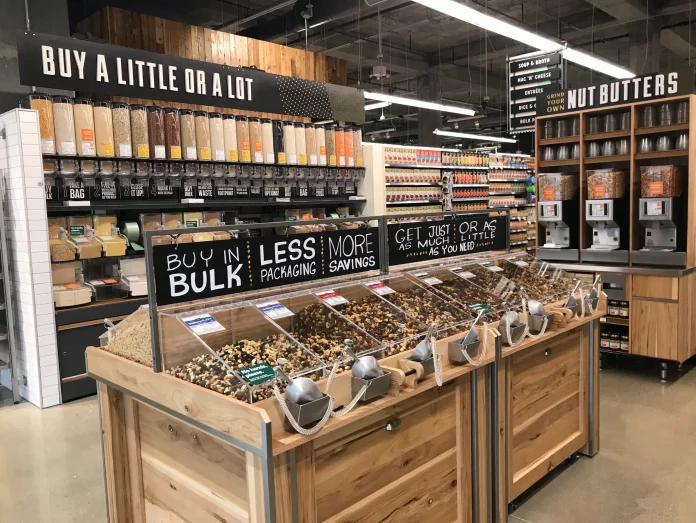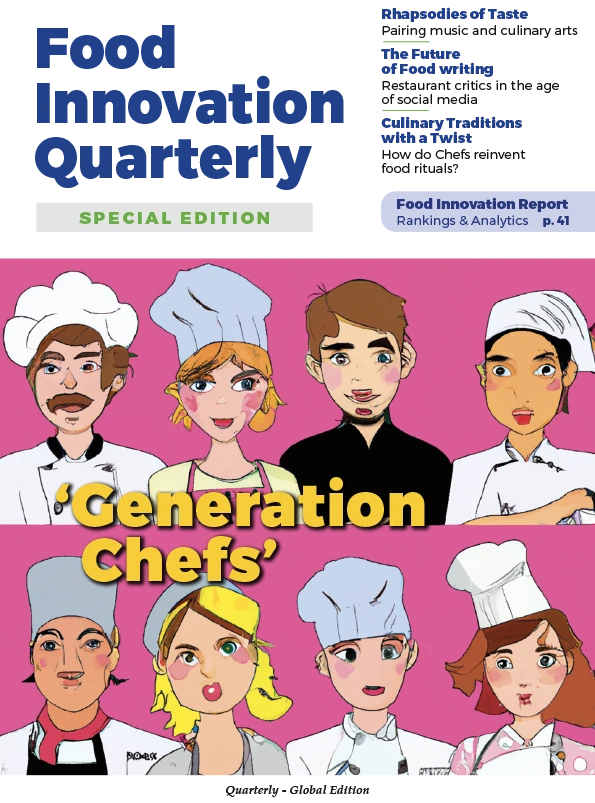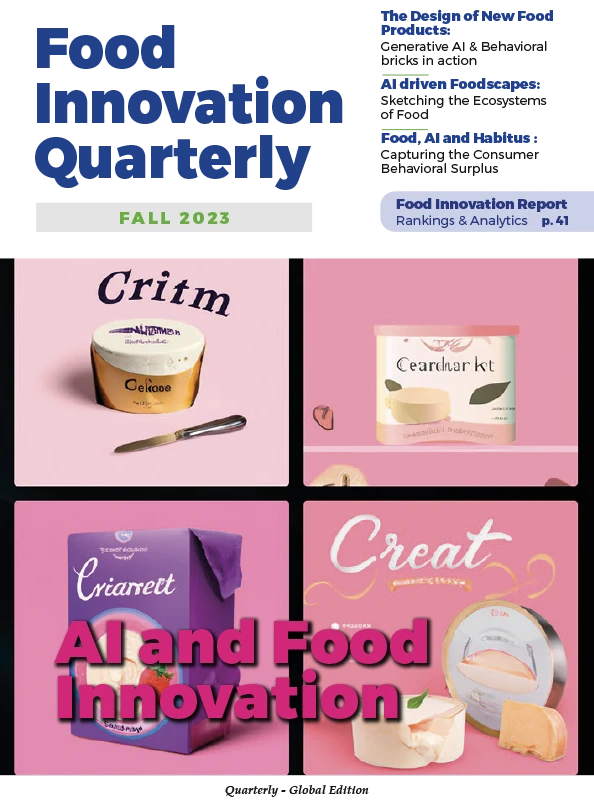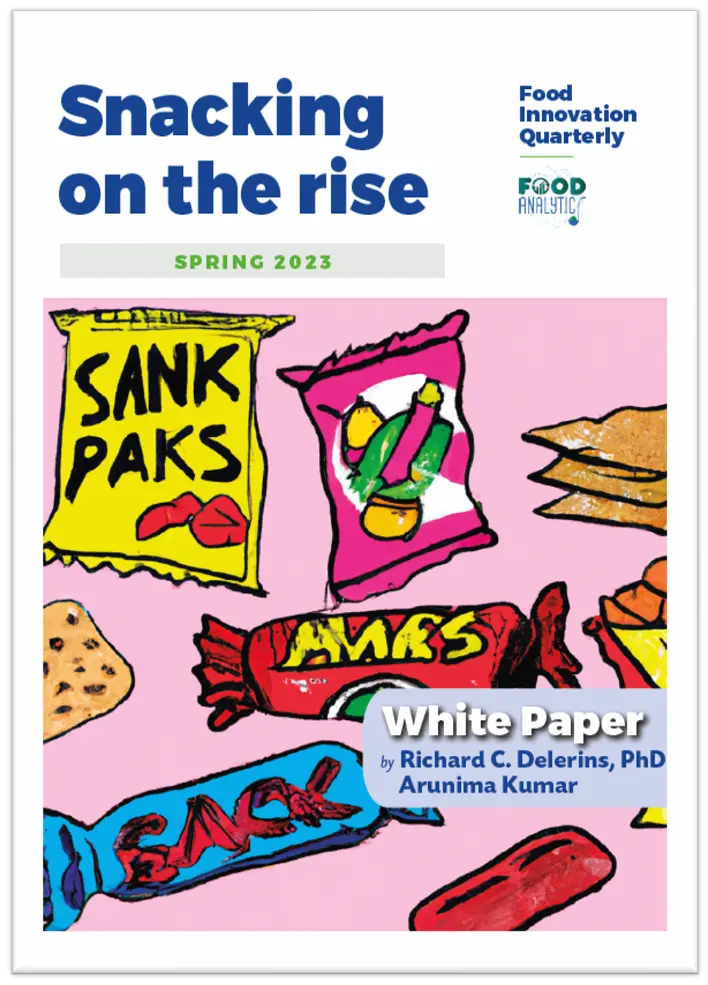The bulk aisle can no longer afford to be the neglected corner of the supermarket that has long resisted a transformation. According to the U.S. Environmental Protection Agency, packaging and containers make up 23% of what we dispose of annually.
What doesn’t get recycled ends up in ever- expanding landfills, air polluting incinerators, or accumulates in the oceans. It is no news that pollution from single-use packaging is a global crisis and scientists predict that this plastic waste will increase four times by 2050. In most supermarkets, the bulk sections are just there, not actually frequented by the shoppers as often as they should be. But small & independent natural foods stores are striving to make bulk a mainstay. It is time for grocery’s most unwieldy section to shine as a standalone show.
Weight vs Unit
In France, the word ‘VRAC’ which refers to bulk stores was first used in the 18th Century as ‘en vrac’ for the fish put in barrels without being arranged in beds. Later on, in the early 19th Century, this started referring to goods exhibited or transported without wrapping, without particular conditioning, pretty much what bulk stores stand for today.
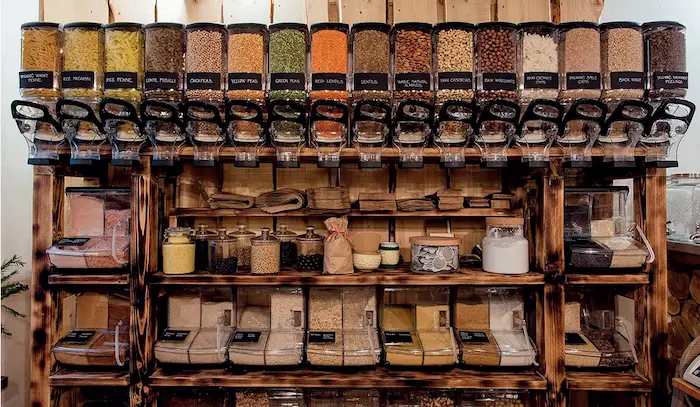
Bulk stores are simply about purchasing by weight and not by unit. The concept is not just good for the environment, but also for the wallet. The customers can bring their own clean container or purchase a reusable option available in the store and fill the container with the product of their choice. The container is first weighed empty and once filled with products, the weight of the container is deducted at the checkout counter, measuring only the product. Daybyday, the leading bulk grocery store present in France, Luxembourg and Belgium with 76 shops offering a range of over 750 products for bulk purchase, recently launched their own mobile app for bulk shopping, the first of its kind. L’Epicerie Kilogramme is another such store which is a firm believer that customer has the right to know where their food originates and to be given the choice of reusable instead of disposable. Dedicated to the zero-waste lifestyle, Mes courses en vrac was born out of the founder, Carole Lymer’s, transition to ‘a way of life more consistent with the rhythm of nature around us.’


‘Honey, we don’t waste’
Negozio Leggero, a Sicilian zero-waste lifestyle store recently opened a franchise in Paris and operates an online store active throughout Europe.
In Hong Kong, Edgar, a sustainable lifestyle store and Live Zero, a universe of zero waste and bulk items are acting as a catalyst in favour of the motion. Malaysia’s The Hive, with its tagline, ‘Honey, we don’t waste’ was the first zero waste store in the country offering the largest bulk whole foods option, also cleaning products and anything one may need at home. It now has 5 outlets spread throughout the country.
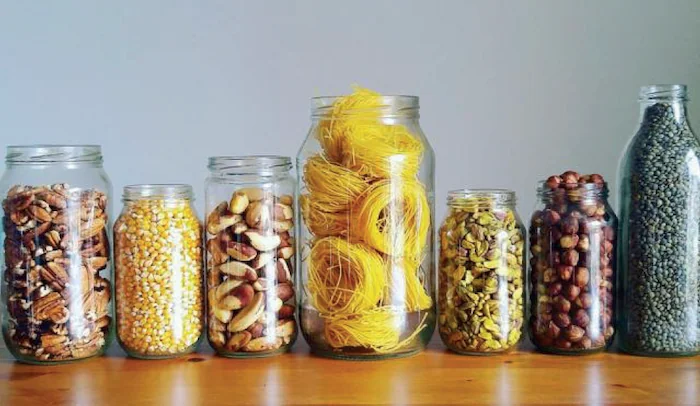
Interestingly, but not shockingly, the French took VRAC a step further with Vin En Vrac (au tonneau), which brings together a selection of bulk adult beverages—with wines from across France and distilled spirits that you bottle yourself and take home. Another literally adventurous endeavour is VRAC en Chartreuse, a bulk grocery shop on wheels which will offer ethical, organic and local Chartreuse products exclusively in bulk or in returnable jars. La Maison du Zero Dechet allows visitors to equip themselves to reduce their daily waste and offers not just products but also events (practical workshops, conferences, screenings, debates) around issues related to waste management and implementation.
In Europe and some parts of Asia, the bulk store concept has fared significantly well but the American consumers were slow to get used to the format. At the forefront of raising awareness, an event called The National Bulk Week was first organised by BIG, or the Bulk is Green Foundation in 2011 in Portland with bulk block parties, offering further discounts on bulk foods. US’ first zero-waste bulk grocery store, In.gredients, opened in 2012 in Austin, Texas but had to shut its doors shortly after due to a failure in changing the shopping habits of consumers. The bulk store entrepreneurs were however undeterred.
The momentum picked up around 2016 when a plethora of standalone bulk stores started cropping up across the states. Katerina Bogatireva, the founder of Precycle, in Brooklyn is one such entrepreneur. ‘Just having a little trash feels really good’ she says. The Filling Station, Dill Pickle Co-op, Simply Bulk Market, Zero Market, the Refill Shoppe are some others that followed suite and are doing well.
The New Old
According to CNN, “Zero waste isn’t just for hippies anymore” and surely the ordinary customer is catching on. We wait for supermarket chains and packaging companies to have this Eureka moment! While on one end, daily consumption items like oranges are being ‘decommoditized’ by branding and labelling each individual fruit, bulk stores are all about ‘re-commodification’ but only the best parts of it. They promote de-processing of foods by getting rid of a lot of intermediary steps and of course all the packaging. The customer is once again at the centre of the act of grocery shopping. So, the close customer interaction, the investment and support of the nearby residents, organic and local products, it sounds all too familiar. Zero-waste bulk shopping can thus be dubbed as the new old or the revival of the neighbourhood shop. The question remains on whether or not it will become mainstream.


